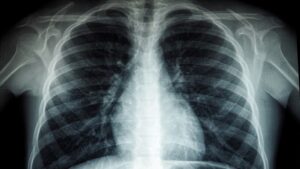[ad_1]
While lying down Dizziness WHY IT HAPPEN?
Dizziness is a common condition that can be seen in everyone regardless of gender. Dizziness can occur even when moving or lying down. The causes of dizziness may vary from person to person. As a result of dizziness, a feeling of imbalance will be experienced, so the person should be careful. Because dizziness can occur even when lying down, it is a discomfort that can occur at any time.
The most common type is Benign Paroxysmal Positional, also known as crystal play. Vertigo (BPPV). In the presence of BPPV, the person complains of dizziness when lying on his back, turning left and right in a lying position, leaning forward, lifting his head up or suddenly moving it.
WHAT IS BENIGN PAROXYSMAL POSITIONAL VERTIGO (BPPV)?
Benign Paroxysmal Positional Vertigo is a type of dizziness disease. This disease is called a benign positional vertigo. This disease occurs with dizziness and involuntary movements in the eyes. This dizziness subsides over time and often goes away on its own.
The cause of the disease is a problem in the inner ear. BPPV disease occurs as a result of small calcium crystals in the inner ear coming out of their adherence and moving into the balance channels in small pieces. Dizziness is an effect of this disease.
WHAT ARE THE CAUSES OF DIVERSE?
dizziness, brain, earIt can be caused by heart problems and different neurological problems. In addition, exposure to intense stress, drugs and alcohol use may play a role in the formation of dizziness complaints.
Sudden changes in blood pressure, anemia, ear infections, prolonged dehydration (dehydration), heat, motion sickness and excessive exercise can also cause dizziness.
Common causes of dizziness can be listed as follows:
Peripherik Vertigo: In the presence of peripheral vertigo, dizziness occurs due to extra-cranial causes, or in other words, the balance center in the inner and / or middle ear is affected. In the presence of peripheral vertigo, which causes severe dizziness when the head position is changed, the person may experience additional complaints such as nausea and vomiting.
Peripheral vertigo mostly develops due to metabolic diseases, hypoglycemia, hyperthyroidism, high blood pressure, and disorders in the musculoskeletal system.
In addition to all these, diseases such as perilymphatic fistula, Meniere’s and neuritis that develop after upper respiratory tract infections can also cause peripheral vertigo. The most common type is popularly known as crystal play. Benign Paroxysmal Positional Vertigo (BPPV)‘Stop. In the presence of BPPV, the person complains of dizziness when lying on his back, turning left and right in a lying position, leaning forward, lifting his head up or suddenly moving it.
When a physician is consulted with such complaints, the physician applies the Dix-Hallpike (DH) test and side lying test to the person for diagnosis. During these tests, the physician changes the patient’s body position and examines the eye movements.
Santral Vertigo: Central vertigo seen in the presence of disorders originating from the brain is more serious than peripheral vertigo. health caused by problems. Central vertigo, which accounts for approximately 25% of all vertigo types, is characterized by severe dizziness.
In addition, it can cause complaints such as headache, double vision, drowsiness, speech and swallowing disorders. Brain Structural defects in blood vessels, aneurysm, epileptic seizures, encephalitis, cerebral hemorrhage, brain tumor, brain stem infarction, head trauma or drug use are among the common causes of central vertigo.
Metabolic Diseases: In addition to heart, liver and thyroid diseases, dizziness may occur due to the use of certain medications. Heart failure, heart valve diseases, rhythm disorders, diabetes, blood pressure and blood sugar irregularities, as well as inability to maintain fluid and electrolyte balance can cause dizziness. Treatment of dizziness due to metabolic diseases treatment being improved.
Infection: Infections such as the common cold or flu can cause dizziness. The severity of dizziness may vary depending on the type of infection.
Brain Tumors: Brain tumor, which can be seen at almost any age, can cause dizziness. Especially benign or malignant tumors in the cerebellum, where the balance center is located, can cause dizziness.
Neurological Diseases: Some neurological conditions such as Parkinson’s, MS, and myelin diseases can cause dizziness. Depending on the nature of the neurological disease, many different symptoms can be seen in addition to dizziness.
Traumas: A hard blow or injury to the head can cause dizziness. Dizziness can occur immediately after trauma, or it can occur after a long time.
Psychological Disorders: Many different psychological disorders such as intense stress, panic attacks, anxiety disorder and depression can cause dizziness.
[ad_2]






